| The Works | ||||
|---|---|---|---|---|
 | ||||
| Box set by | ||||
| Released | 31 March 2008 | |||
| Genre | Post-punk | |||
| Label | Rhino | |||
| Echo & the Bunnymen chronology | ||||
| ||||
| Review scores | |
|---|---|
| Source | Rating |
| Allmusic | |
The Works is a boxed set compilation album by Echo & the Bunnymen, which was released on 31 March 2008.
| The Works | ||||
|---|---|---|---|---|
 | ||||
| Box set by | ||||
| Released | 31 March 2008 | |||
| Genre | Post-punk | |||
| Label | Rhino | |||
| Echo & the Bunnymen chronology | ||||
| ||||
| Review scores | |
|---|---|
| Source | Rating |
| Allmusic | |
The Works is a boxed set compilation album by Echo & the Bunnymen, which was released on 31 March 2008.
In Greek mythology, Apate is the goddess and personification of deceit. Her mother is Nyx, the personification of the night. In Roman mythology her equivalent is Fraus (Fraud), while her male counterpart is Dolus (Deception), and her opposite number Aletheia, the goddess of truth.
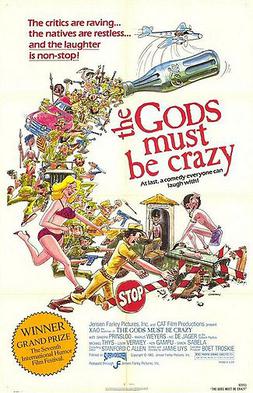
The Gods Must Be Crazy is a 1980 comedy film written, produced, edited and directed by Jamie Uys. An international co-production of South Africa and Botswana, it is the first film in The Gods Must Be Crazy series. Set in Southern Africa, the film stars Namibian San farmer Nǃxau ǂToma as Xi, a hunter-gatherer of the Kalahari Desert whose tribe discovers a glass Coca-Cola bottle dropped from an aeroplane, and believe it to be a gift from their gods. When Xi sets out to return the bottle to the gods, his journey becomes intertwined with that of a biologist, a newly hired village school teacher, and a band of guerrilla terrorists.
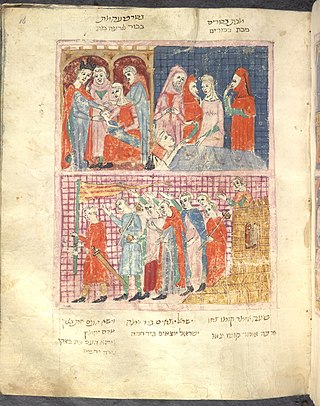
The Plagues of Egypt, in the account of the Book of Exodus, are ten disasters inflicted on biblical Egypt by the God of Israel (Yahweh) in order to convince the Pharaoh to emancipate the enslaved Israelites, each of them confronting Pharaoh and one of his Egyptian gods; they serve as "signs and marvels" given by God to answer Pharaoh's taunt that he does not know Yahweh: "The Egyptians shall know that I am the LORD". The Ten Plagues are recited during the Passover Seder.
The Farewell Sermon also known as Muhammad's Final Sermon or the Last Sermon, is a religious speech, delivered by the Islamic prophet Muhammad on Friday the 9th of Dhu al-Hijjah, 10 AH in the Uranah valley of Mount Arafat, during the Islamic pilgrimage of Hajj. Muhammad al-Bukhari refers to the sermon and quotes part of it in his Sahih al-Bukhari. Part of it is also present in Sahih Muslim and Sunan Abu Dawood. Verse 5:3, "Today I have perfected for you your religion," is believed to have been recited during the address as the capstone verse of the Quran. Various versions of the sermon have been published, including several English translations. The sermon consists of a series of general exhortations for Muslims to follow the teachings that Muhammad had set forth in the Quran and Ahl al-Bayt.
The Phaedrus, written by Plato, is a dialogue between Socrates, and Phaedrus, an interlocutor in several dialogues. The Phaedrus was presumably composed around 370 BC, about the same time as Plato's Republic and Symposium. Although ostensibly about the topic of love, the discussion in the dialogue revolves around the art of rhetoric and how it should be practiced, and dwells on subjects as diverse as metempsychosis and erotic love, and the nature of the human soul shown in the famous Chariot Allegory.

Behula is a protagonist in the Manasamangal genre of Assamese and Bengali medieval epics. A number of works belonging to this genre were written between the thirteenth and eighteenth centuries. Though the religious purpose of these works is to eulogise the Hindu goddess Manasa, these works are more well known for depicting the love story of Behula and her husband Lakhindar.
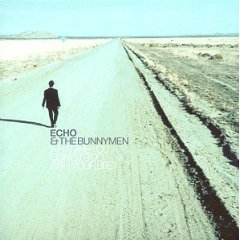
What Are You Going to Do with Your Life? is the eighth studio album by the English rock band Echo & the Bunnymen. The album saw the departure of bassist Les Pattinson from the group, partly due to disagreements with vocalist Ian McCulloch; McCulloch and the remaining band member, guitarist Will Sergeant, subsequently recorded the record with session musicians. The London Metropolitan Orchestra provided backing music and the American rap rock band Fun Lovin' Criminals appeared as guest musicians on two tracks. The album was produced by Alan Douglas and Echo & the Bunnymen and it was recorded at various locations throughout England. Feeling sidelined during the recording of the album, Sergeant described it as "probably the worst time in my whole life".
This is a comprehensive listing of official post-Idol releases by various contestants of the television show American Idol.

The Cylinders of Nabonidus refers to cuneiform inscriptions of king Nabonidus of Babylonia. These inscriptions were made on clay cylinders. They include the Nabonidus Cylinder from Sippar, and the Nabonidus Cylinders from Ur, four in number.
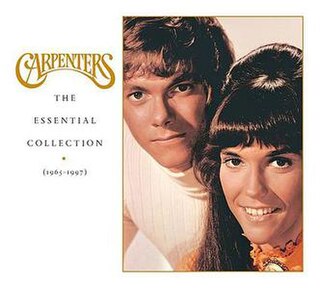
The Essential Collection: 1965–1997 is a box-set compilation album from The Carpenters that, with the exception of a few track changes, is essentially the same as the 1991 From the Top set. Coming in at four discs and 73 songs, this album is one of the biggest of all Carpenters compilation sets. The songs from this box set are everything from the Richard Carpenter Trio recordings from 1965 to their biggest hits in the early 1970s to the last song ever recorded by the Carpenters, "Now".

The Ultimate Collection is a 3-CD set by The Carpenters released in 2006. It contains many of their popular songs, like "(They Long to Be) Close to You" and "Top of the World", and their album cuts, like "Desperado" and "Jambalaya ". All of the songs are taken directly from the original album. In the case of "Yesterday Once More", it fades into a motorcycle engine, which subsequently fades into the oldies medley on the Now & Then album.
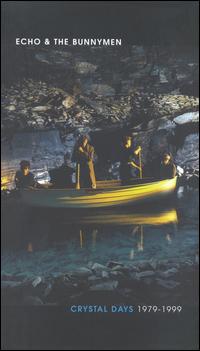
Crystal Days: 1979–1999 is a four CD box set by Echo & the Bunnymen which was released in July 2001. It is a retrospective compilation of the band's work between 1979 and 1999. The first three cds include most of their singles, several album tracks, some alternate mixes, unreleased songs and B-sides published on 7-inch and 12-inch vinyls, plus versions recorded for John Peel sessions on BBC Radio 1. The fourth CD is a live cd with cover versions.
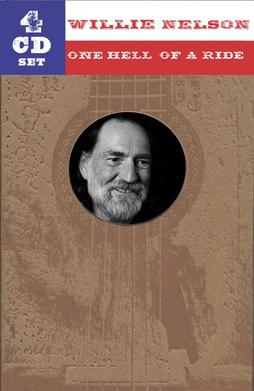
One Hell of a Ride is a four-disc box set by country singer Willie Nelson, released on April 1, 2008.

"I am the LORD thy God" is the opening phrase of the Ten Commandments, which are widely understood as moral imperatives by ancient legal historians and Jewish and Christian biblical scholars.

Numit Kappa is an ancient Meitei language mythological epic literary work. The work is believed to be written around or before 33 AD. It is written in the form of partial poetry and partial prose.